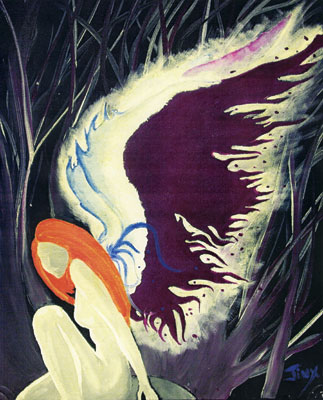All Nonfiction
- Bullying
- Books
- Academic
- Author Interviews
- Celebrity interviews
- College Articles
- College Essays
- Educator of the Year
- Heroes
- Interviews
- Memoir
- Personal Experience
- Sports
- Travel & Culture
All Opinions
- Bullying
- Current Events / Politics
- Discrimination
- Drugs / Alcohol / Smoking
- Entertainment / Celebrities
- Environment
- Love / Relationships
- Movies / Music / TV
- Pop Culture / Trends
- School / College
- Social Issues / Civics
- Spirituality / Religion
- Sports / Hobbies
All Hot Topics
- Bullying
- Community Service
- Environment
- Health
- Letters to the Editor
- Pride & Prejudice
- What Matters
- Back
Summer Guide
- Program Links
- Program Reviews
- Back
College Guide
- College Links
- College Reviews
- College Essays
- College Articles
- Back
Yevgeniy MAG
Walking into the school for disabled children was an unsettling experience. Between every pair of cots sat a small child in a wheelchair staring up at me with an inscrutable expression. Tears threatened to reveal my fear and discomfort. I have wanted to be a child psychologist from the age of ten, when my cousin’s autism exposed me to experimental treatments of childhood disorders.
I suppose I thought I would walk into the school and know what all the children needed, but once there, I felt helpless. I saw each child as I had seen the one before - someone whom I would never be capable of reaching.
The next day when I returned, I observed the teachers. I wondered how they could be so adept at connecting to these kids who intimidated me. One teacher told me that the majority of the three-years-olds functioned at the level of a one-month-old. If I couldn’t speak to them in a meaningful way, read to them, play games or interact on the levels to which I was accustomed, was my task simply to take care of their bodies? I couldn’t stop thinking about what they would be like had they been born healthy, and I again left feeling dismayed.
Once the teachers knew I was responsible, my supervisor told me to play with a small boy named Yevgeniy. I spent the next hour looking at him. His infant mannerisms made me want to protect him. He was three and a half but weighed only 17 pounds because his parents had refused to have a feeding tube inserted. I was told that his parents wanted him to die so they could move on with their lives. I pictured his healthy alter ego and tried to imagine the person inside him trying to get out. As I did this, I dangled a chime near his hand, so as he moved involuntarily he would create a high metallic tone. With every sound he created, Yevgeniy squealed excitedly. I discovered he loved sounds. He beamed as I whispered into his ears, or sang.
Yevgeniy and I made our own games. I now know that as soon as I learned who he was, I realized there was no secret identity inside him - he was already somebody very complete. Yevgeniy taught me to see the other children as human beings.
As soon as I saw them as Yevgeniy, who likes to be flipped from stomach to back and to stomach, and Raffi, who likes to give me hugs as I pass him in the hallway, and Patrick, who loves to open and close doors, as soon as I knew them and not just their conditions, I no longer felt afraid. I knew I could connect because we were all human, on every level, and this, I believe, is the secret to being a good psychologist.

Similar Articles
JOIN THE DISCUSSION
This article has 2 comments.
good connection and great personal essay

0 articles 0 photos 12292 comments